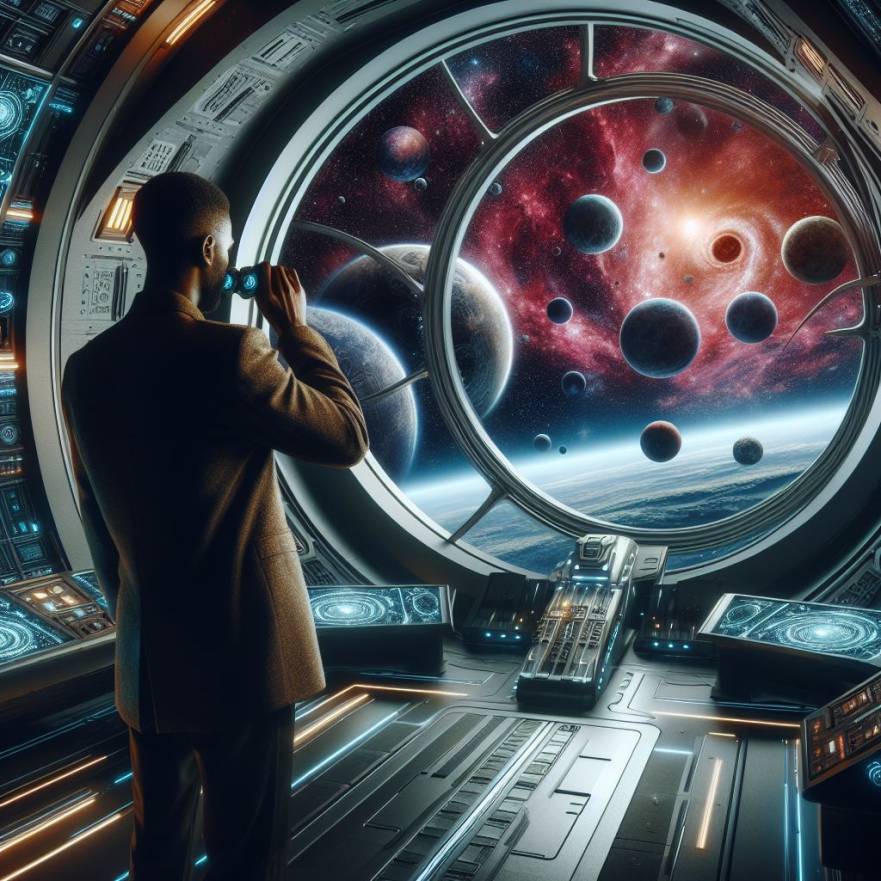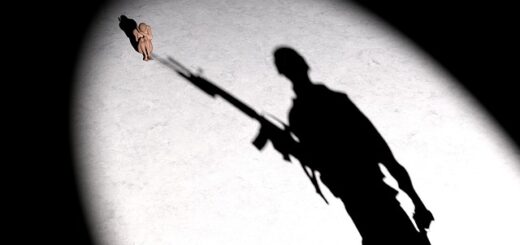The Arrival by Alastair Millar

The Arrival by Alastair Millar
They’d had to go in blind, of course. Oh, HD 40307 had seemed like a good bet: the seventh planet out had been deemed so likely to be habitable that the techmen had even christened it Hope – but 42 light years was just too far to send a probe to check.
So a full mission had been decided upon anyway. Five thousand volunteers (selected from more than quarter of a million applicants) had been sequestered aboard, huge quantities of equipment had been loaded, the aeroponic gardens had been seeded, and the semi-AI that oversaw the navigation computers had been woken up and instructed, before the Migration Ship ‘Wind of Helios’ had finally been launched into the Void. It was, in every sense, a shot in the dark.
Now, Connors looked through the telescope in the observation bubble, and felt disquiet. The solar sails that had given the massive starcraft its name had not functioned as promised, and while still close to lightspeed, their journey had taken longer than expected. Not that the passengers would mind, sealed away in their cryotubes; he should know, looking after them and keeping everyone’s vital signs within tolerances had been his job. He’d done it well, too, only losing 3% of them on the voyage, well below even the most optimistic predictions.
The system’s planets were visible in the lens now, as they came in perpendicular to the ecliptic. A mixture of balls of rock lacking atmosphere, huge gas giants, and a single blue-green pearl shining in the darkness.
The crew were all feeling their age, though, despite the longevity drugs. Ten decades of travelling through space felt like more than a lifetime because it was. And what awaited them all now? Stress, certainly; and probably some anger or disappointment, because some people always reacted that way to anything unexpected.
No, they hadn’t known what they’d find, he reflected. They certainly hadn’t predicted a planet covered in toxic algal blooms that made it entirely unsuitable for life; they hadn’t expected to discover that their lives had been sacrificed for nothing, wasted out between the stars.
And so they had made the decision to return, and take news of their failure back to Earth. If nothing else, they could save the lives of the passengers, for all that, thanks to the time dilation effect, six centuries would have passed back on the Mother Planet since their departure. Perhaps they were the stuff of legend now; perhaps they had been forgotten. Maybe other missions had been successful, or met tragic fates. They might end up heroes, or be treated as hopelessly archaic relatives, relics of the distant past.
Or possibly, there would be nobody left to greet them, and they would descend to recolonise a shattered or recovering world, and thus fulfil their mission of rescuing humanity after all. There was no way to tell.
So, Connors stayed at his post with the telescope, and looked for a sign of what was to come.
* * * * THE END * * * *
Copyright Alastair Millar 2024























